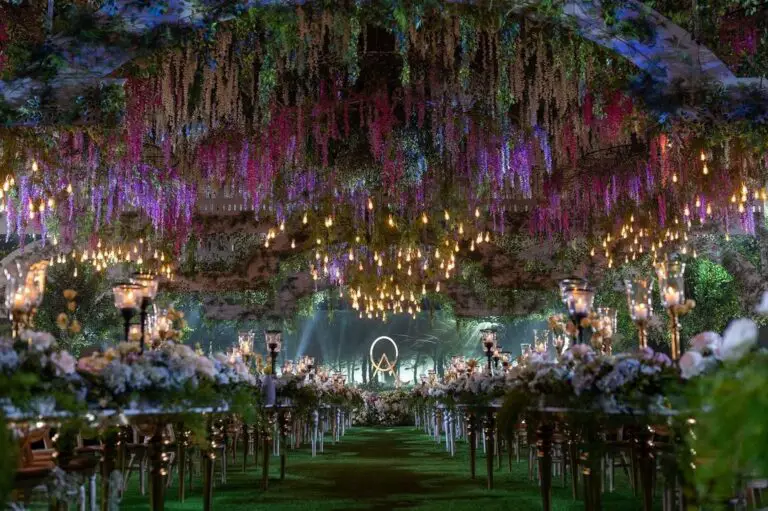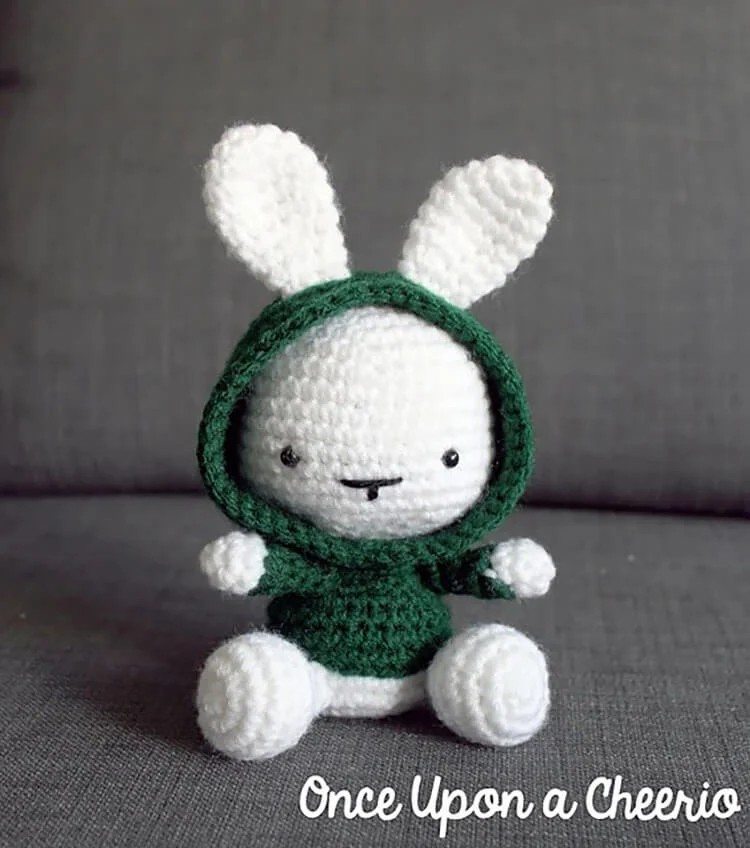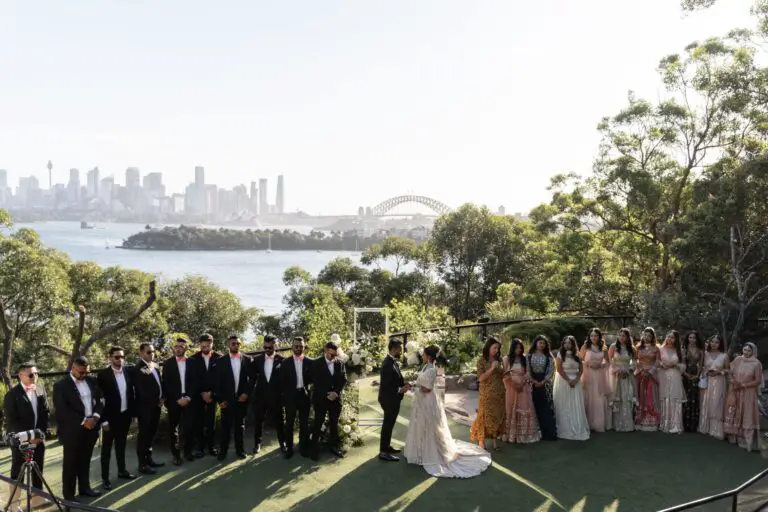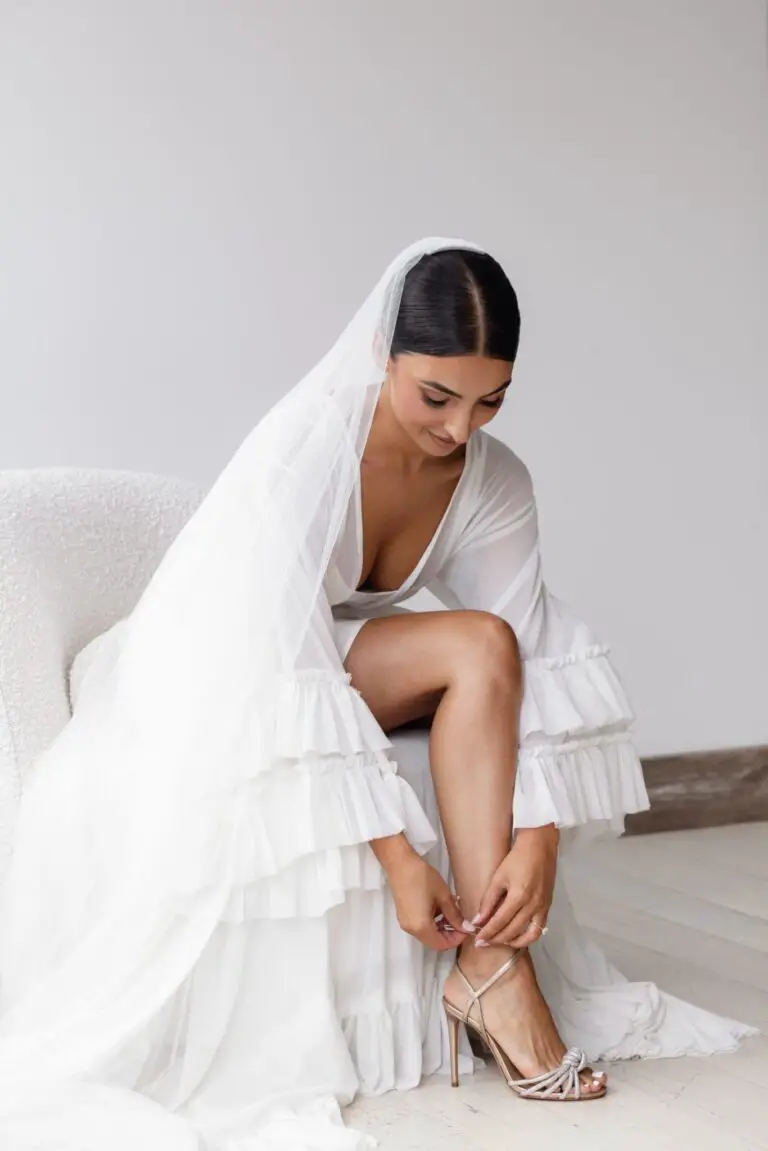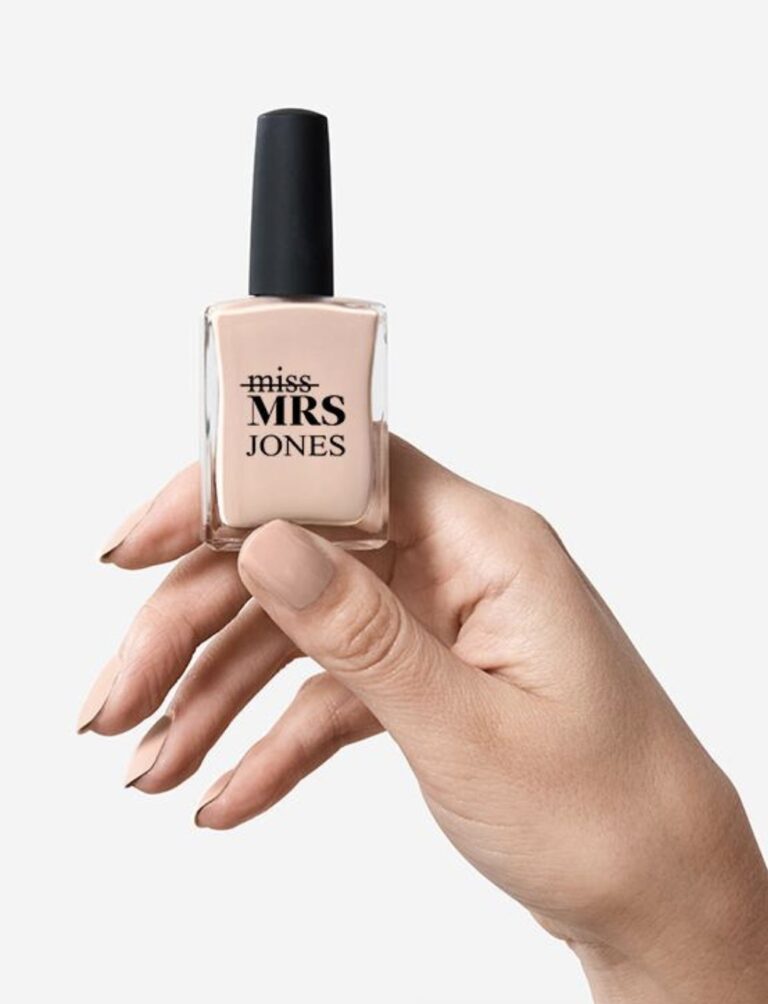7 Arab Muslim Wedding Traditions We Love
Marriage, a beautiful journey, often involves honoring tradition and embracing cultural heritage. Arab Muslim weddings, in particular, are vibrant celebrations that seamlessly blend deep-rooted customs with modern flair, creating unforgettable moments for all involved. The ceremony and subsequent festivities are filled with rituals and practices that have been passed down through generations, weaving a rich tapestry of love, commitment, and joy.
With its unique blend of cultural nuances and personal touches, an Arab Muslim wedding is truly a celebration to behold.
Tolbe: A Blessing From The Heart
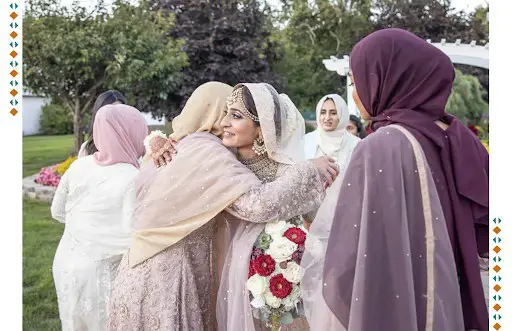
As the wedding preparations reach their crescendo, a poignant display of the groom’s profound admiration for the bride’s family unfolds during the Tolbe ceremony. This heartwarming ritual brings together both families, as they recite prayers from the Holy Quran and indulge in an assortment of tea, coffee, and sweet treats. The atmosphere is filled with unity, love, and anticipation for the impending union, perfectly capturing the essence of the wedding celebrations to come.
Katb Al-Kitab: A Sacred Promise
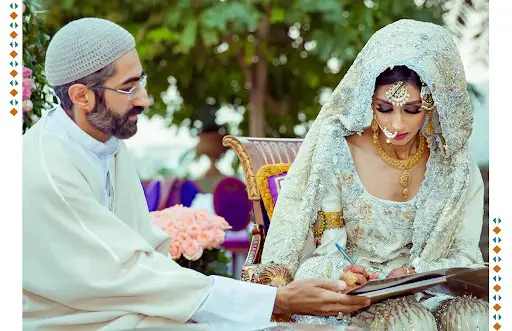
The Arab Muslim wedding revolves around the Katb Al-kitaab, a sacred ceremony where the terms of matrimony are solemnly established under the watchful eye of a respected sheikh. The occasion is marked by guests attired in modest attire, who bear witness to the signing of the marriage contract between the bride and groom. This poignant moment embodies the values of love, respect, and courtesy, making it an unforgettable experience for both the couple and their families.
The image of this revered event is often captured through beautiful photographs, such as those taken by Fabriclore.
Mahr: A Symbol of Love and Appreciation
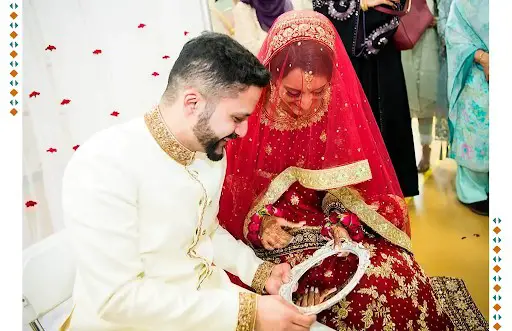
In Islamic tradition, the Mahr serves as a poignant symbol of devotion and gratitude, bestowed upon the bride by her groom during the sacred ritual of Katb Al-kitaab. This thoughtful gift not only signifies the groom’s unwavering commitment but also underscores the profound esteem in which Islam holds women. As a tangible representation of their bond, the Mahr becomes an enduring testament to the couple’s connection, underscoring the depth and richness of their relationship.
Zaffe: The Grand Entrance
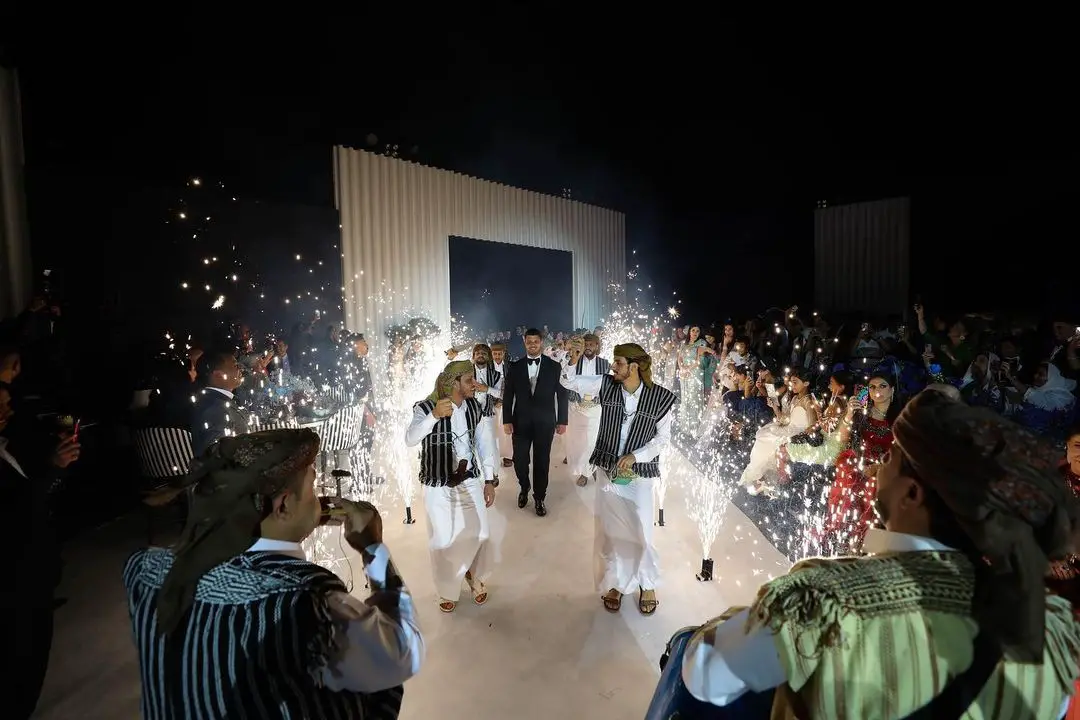
As the newlyweds make their grand entrance at the reception, the air is electric with excitement and jubilation. The Zaffe ceremony, marked by vibrant Arabic music and the infectious Zaghrouta cheer, marks the moment when the bride, accompanied by her beaming father, meets her groom for the first time as a married couple.
This cherished tradition beautifully captures the essence of the couple’s journey into marriage, poetically conveying their commitment to unity, love, and a bright future together.
Dabke: A Dance of Togetherness
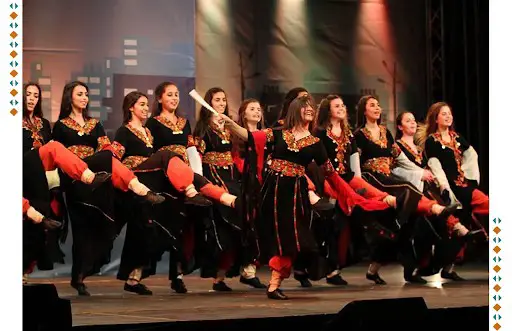
In Arab Muslim weddings, the energetic dance floor is a staple of celebration. The traditional folk dance, Dabke, brings people together as professional dancers and guests alike join hands in a lively circle, filling the air with laughter and joy. Meanwhile, in Egyptian weddings, the mesmerizing movements of belly dancers add an extra layer of elegance and excitement to the festivities, crafting an atmosphere that’s nothing short of electric.
Cake Cutting: A Sword and Sparkling Celebrations
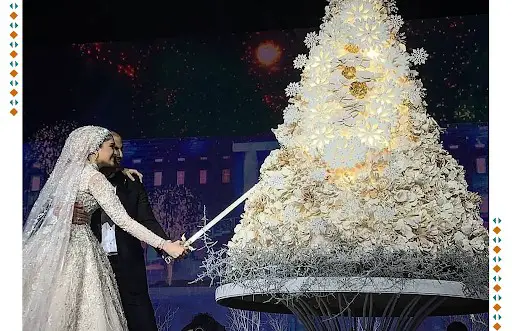
As the multi-tiered wedding cake is unveiled, it’s not just a sweet treat that captures attention – it’s also a symbol of the couple’s unity and commitment to navigating life’s adventures together. The groom’s use of a family heirloom sword to cut the first slice is a poignant reminder of their shared journey, while any sparklers that may suddenly appear from within the cake’s ornate design add an air of enchantment to the proceedings.
Barmet Al-aroos: A Joyous Farewell
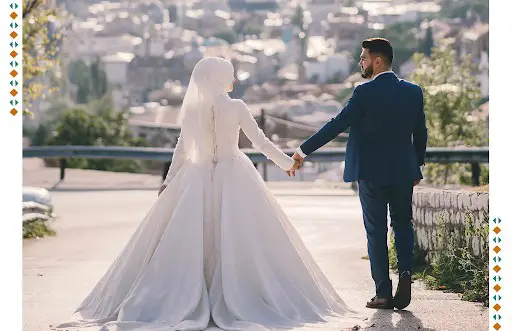
As the final farewell is said, the Barmet Al-aroos ceremony takes center stage. With a backdrop of vibrant decorations, the newlyweds depart on their new life’s journey, surrounded by friends and family in a lively procession. The air is filled with the sweet sounds of music and horns, as loved ones bid their well-wishes to the happy couple. This cherished tradition not only brings an air of cultural authenticity but also forges unforgettable memories for all involved.
By embracing these time-honored customs, couples can weave a tapestry of love, respect, and joy into the fabric of their special day. The allure of these enchanting Arab Muslim wedding traditions lies in their ability to infuse the celebration with an extra layer of emotional depth and cultural richness. As the couple embarks on this new chapter together, they’re surrounded by the warmth and enthusiasm of those who matter most.
In doing so, they create a sense of communal joy that will be cherished for years to come.

